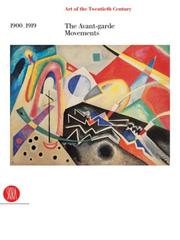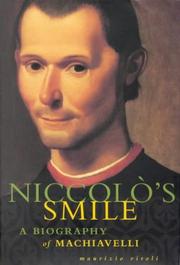| Listing 1 - 10 of 24 | << page >> |
Sort by
|

ISBN: 8876246045 9788876246043 Year: 2006 Publisher: Milano : Skira,
Abstract | Keywords | Export | Availability | Bookmark
 Loading...
Loading...Choose an application
- Reference Manager
- EndNote
- RefWorks (Direct export to RefWorks)
Der Blaue Reiter --- avant-garde --- Die Blaue Vier --- Expressionist [style] --- Modernist --- History --- Futurist --- De Stijl --- Die Brücke --- Iconography --- Art --- art history --- Suprematist --- art [fine art] --- Cubist --- Art styles --- Fauve --- Art Nouveau --- Dada --- motion pictures [visual works] --- metaphysics --- anno 1910-1919 --- anno 1930-1939 --- anno 1900-1909 --- anno 1900-1999 --- anno 1800-1899 --- anno 1920-1929 --- Art, Modern --- kunst --- naslagwerk --- kunstgeschiedenis --- twintigste eeuw --- schilderkunst --- fauvisme --- kubisme --- art nouveau --- expressionisme --- futurisme --- kunst en film --- suprematisme --- abstractie --- abstracte schilderkunst --- dada --- dadaïsme --- 7.03 --- 7.036.1 --- 7.036 --- Moderne kunststijlen --- 7.036 Moderne kunststijlen --- modernisme --- 1900 - 1919 --- 20ste eeuw --- Affichistes (Group of artists) --- Fluxus (Group of artists) --- Modernism (Art) --- Schule der Neuen Prächtigkeit (Group of artists) --- Zero (Group of artists) --- avant-garde. --- modernisme. --- 1900 - 1919. --- 20ste eeuw. --- art [discipline] --- tentoonstelling Gent (1848). --- 19de eeuw.

ISBN: 1850435308 9781850435303 Year: 2001 Publisher: London: Tauris Academis Studies,
Abstract | Keywords | Export | Availability | Bookmark
 Loading...
Loading...Choose an application
- Reference Manager
- EndNote
- RefWorks (Direct export to RefWorks)
Statesmen --- Philosophers --- Hommes d'Etat --- Philosophes --- Biography --- Biographies --- Machiavelli, Niccolò, --- Florence (Italy) --- Florence (Italie) --- Politics and government --- Politique et gouvernement --- Machiavelli, Niccolò,
Book
ISBN: 1282639447 9786612639449 1400835038 9781400835034 9780691124148 0691124140 9781282639447 9780691154497 069115449X Year: 2010 Publisher: Princeton : Princeton University Press,
Abstract | Keywords | Export | Availability | Bookmark
 Loading...
Loading...Choose an application
- Reference Manager
- EndNote
- RefWorks (Direct export to RefWorks)
To many readers of The Prince, Machiavelli appears to be deeply un-Christian or even anti-Christian, a cynic who thinks rulers should use religion only to keep their subjects in check. But in Machiavelli's God, Maurizio Viroli, one of the world's leading authorities on Machiavelli, argues that Machiavelli, far from opposing Christianity, thought it was crucial to republican social and political renewal--but that first it needed to be renewed itself. And without understanding this, Viroli contends, it is impossible to comprehend Machiavelli's thought. Viroli places Machiavelli in the context of Florence's republican Christianity, which was founded on the idea that the true Christian is a citizen who serves the common good. In this tradition, God participates in human affairs, supports and rewards those who govern justly, and desires men to make the earthly city similar to the divine one. Building on this tradition, Machiavelli advocated a religion of virtue, and he believed that, without this faith, free republics could not be established, defend themselves against corruption, or survive. Viroli makes a powerful case that Machiavelli, far from being a pagan or atheist, was a prophet of a true religion of liberty, a way of moral and political living that would rediscover and pursue charity and justice. The translation of this work has been funded by SEPS - Segretariato Europeo per le Pubblicazioni Scientifiche.
Religion and politics. --- Political ethics --- Political science --- Politics, Practical --- Politics and religion --- Religion --- Religions --- Ethics, Political --- Ethics in government --- Government ethics --- Ethics --- Civics --- Religious aspects --- Political aspects --- Moral and ethical aspects --- Machiavelli, Niccolò, --- マキアヴェルリ --- Machiavelli, Niccolo,
Book
ISBN: 1283267470 9786613267474 1400840279 9781400840274 9780691151823 0691151822 9781283267472 6613267473 Year: 2011 Publisher: Princeton, NJ
Abstract | Keywords | Export | Availability | Bookmark
 Loading...
Loading...Choose an application
- Reference Manager
- EndNote
- RefWorks (Direct export to RefWorks)
Italy is a country of free political institutions, yet it has become a nation of servile courtesans, with Silvio Berlusconi as their prince. This is the controversial argument that Italian political philosopher and noted Machiavelli biographer Maurizio Viroli puts forward in The Liberty of Servants. Drawing upon the classical republican conception of liberty, Viroli shows that a people can be unfree even though they are not oppressed. This condition of unfreedom arises as a consequence of being subject to the arbitrary or enormous power of men like Berlusconi, who presides over Italy with his control of government and the media, immense wealth, and infamous lack of self-restraint. Challenging our most cherished notions about liberty, Viroli argues that even if a power like Berlusconi's has been established in the most legitimate manner and people are not denied their basic rights, the mere existence of such power makes those subject to it unfree. Most Italians, following the lead of their elites, lack the minimal moral qualities of free people, such as respect for the Constitution, the willingness to obey laws, and the readiness to discharge civic duties. As Viroli demonstrates, they exhibit instead the characteristics of servility, including flattery, blind devotion to powerful men, an inclination to lie, obsession with appearances, imitation, buffoonery, acquiescence, and docility. Accompanying these traits is a marked arrogance that is apparent among not only politicians but also ordinary citizens.
Liberty --- Political ethics --- Social ethics --- Political corruption --- Civil liberty --- Emancipation --- Freedom --- Liberation --- Personal liberty --- Democracy --- Natural law --- Political science --- Equality --- Libertarianism --- Social control --- Ethics, Political --- Ethics in government --- Government ethics --- Politics, Practical --- Ethics --- Civics --- Social problems --- Sociology --- Moral and ethical aspects --- Berlusconi, Silvio, --- Italy --- Politics and government --- Berluskoni, Silvio, --- Берлускони, Силвио, --- Italian history. --- Italian mores. --- Italy. --- Silvio Berlusconi. --- arbitrary power. --- arrogance. --- blind devotion. --- citizens. --- court system. --- court. --- cynicism. --- dependency. --- domination. --- fear. --- indifference. --- liberty. --- political liberty. --- powerful men. --- republican liberty. --- safety. --- security. --- self-respect. --- servants. --- servility. --- servitude. --- signore. --- subjects. --- superior power. --- unfreedom.
Book
Abstract | Keywords | Export | Availability | Bookmark
 Loading...
Loading...Choose an application
- Reference Manager
- EndNote
- RefWorks (Direct export to RefWorks)
Book
ISBN: 1590515552 Year: 2012 Publisher: [Place of publication not identified] Other Press
Abstract | Keywords | Export | Availability | Bookmark
 Loading...
Loading...Choose an application
- Reference Manager
- EndNote
- RefWorks (Direct export to RefWorks)
Winner of the 2011 Strega prize, Italy's most prestigious literary award, this blend of essay, social criticism, and memoir is a striking portrait of the effects of globalization on Italy's declining economy. Starting with the story of his family's textile factory in Prato, Tuscany, Edoardo Nesi recalls a time of great prosperity when textiles were king in Prato, and he was heir to a company with a decades-long history. Spending his days leraning the ins and outs of fine fabric production, his nights ensconced in the works of F. Scott Fitzgerald and David Foster Wallace, Nesi led what some might call a charmed life. However, in 2004, after more than fifty years in business, the Nesi family decided to sell their company, and in so doing, sold part of their identity as well. Story of my people is a denunciation of big business, corrupt politicians, the arrogrance of economists, and cheap manufacturing. It's a must read for anyone seeking insight into the financial crisis that's battering Europe today.--Book cover.
Textile industry --- Businessmen --- Textile industry --- Businessmen --- Nesi, Edoardo, --- Lanificio T.O. Nesi & figli --- History.
Book
ISBN: 1635422159 Year: 2022 Publisher: New York : Other Press,
Abstract | Keywords | Export | Availability | Bookmark
 Loading...
Loading...Choose an application
- Reference Manager
- EndNote
- RefWorks (Direct export to RefWorks)
"From the Strega Prize-winning author of Story of My People, an astute, multifaceted essay on the seismic shifts of 2020 and how he and people from all walks of life are adapting. Attempting to make sense of the incredible upheaval of 2020-from the devastating impact of COVID-19 to the sudden loss of his father-Edoardo Nesi considers the changing global economy and its effect on our lives. He shares the stories of Alberto Magelli, a small textile entrepreneur; Livia Firth, a prominent advocate for sustainability; Elisa Martelli, a young Sangiovese winemaker; Enrico Giovannini, a leading economist and statistician; Rino Pratesi, a proud butcher from the heart of Tuscany; and more. From the overworked to the unemployed, we're all grappling with difficult questions about our current disorienting world: Will we ever feel healthy again, and what will it take to regain "normality?" What does progress mean today? Have science and technology let us down? What will the increased prevalence of remote working mean for our cities, and for our lifestyles generally? Deftly weaving together the personal and the economic, Nesi takes us on a fascinating journey to understanding"--
COVID-19 Pandemic, 2020 --- -COVID-19 Pandemic, 2020 --- -Economics --- Economic aspects --- Social aspects --- Sociological aspects. --- Nesi, Edoardo,
Book
ISBN: 9781590511046 1590511042 Year: 2024 Publisher: New York : Other Press,
Abstract | Keywords | Export | Availability | Bookmark
 Loading...
Loading...Choose an application
- Reference Manager
- EndNote
- RefWorks (Direct export to RefWorks)
Book
ISBN: 1471165582 Year: 2020 Publisher: London : Simon & Schuster,
Abstract | Keywords | Export | Availability | Bookmark
 Loading...
Loading...Choose an application
- Reference Manager
- EndNote
- RefWorks (Direct export to RefWorks)
Book
Abstract | Keywords | Export | Availability | Bookmark
 Loading...
Loading...Choose an application
- Reference Manager
- EndNote
- RefWorks (Direct export to RefWorks)
"A moving firsthand account of migrant landings on the island of Lampedusa that gives voice to refugees, locals, and volunteers while also exploring a deeply personal father-son relationship. On the island of Lampedusa, the southernmost part of Italy, between Africa and Europe, Davide Enia looks in the faces of those who arrive and those who wait, and tells the story of an individual and collective shipwreck. On one side, a multitude in motion, crossing entire nations and then the Mediterranean Sea under conditions beyond any imagination. On the other, a handful of men and women on the border of an era and a continent, trying to welcome the newcomers. In the middle is the author himself, telling of what actually happens at sea and on land, and the failure of words in the attempt to understand the present paradoxes. Enia reveals the emotional consequences of this touching and disconcerting reality, especially in his relationship with his father, a recently retired doctor who agrees to travel with him to Lampedusa. Witnessing together the public pain of those who land and those who save them from death, alongside the private pain of his uncle's illness, pushes them to reinvent their relationship, to forge a new and unprecedented dialogue that replaces the silences of the past"--
Authors, Italian --- Shipwrecks --- Mediterranean Sea --- History --- Enia, Davide, --- Enia, Davide, --- Travel --- Family. --- Lampedusa Island (Italy) --- Emigration and immigration --- History
| Listing 1 - 10 of 24 | << page >> |
Sort by
|

 Search
Search Feedback
Feedback About UniCat
About UniCat  Help
Help News
News